RIVERSIDE – The former operator of a nonprofit ranch in San Jacinto where old racehorses were placed for retirement but were ultimately neglected, culminating in the facility losing its nonprofit status, is being sued for breach of fiduciary duty and other alleged violations, officials announced Tuesday.
The California Department of Justice filed the civil action against 56- year-old Carrie L. Ard for her alleged mismanagement of the California Equine Retirement Foundation, (CERF) which lost its state and federal nonprofit status over five years ago.
“The California Equine Charity Foundation collected and mishandled donations at the expense of hardworking Californians,” state Attorney General Rob Bonta said. “With this lawsuit, we’re working to hold those involved accountable for their illegal and self-serving actions and to ensure the CERF property is reallocated and used for the care of retired horses. The California Department of Justice is committed to ensuring charities abide by the law and use donations for their intended purposes.”
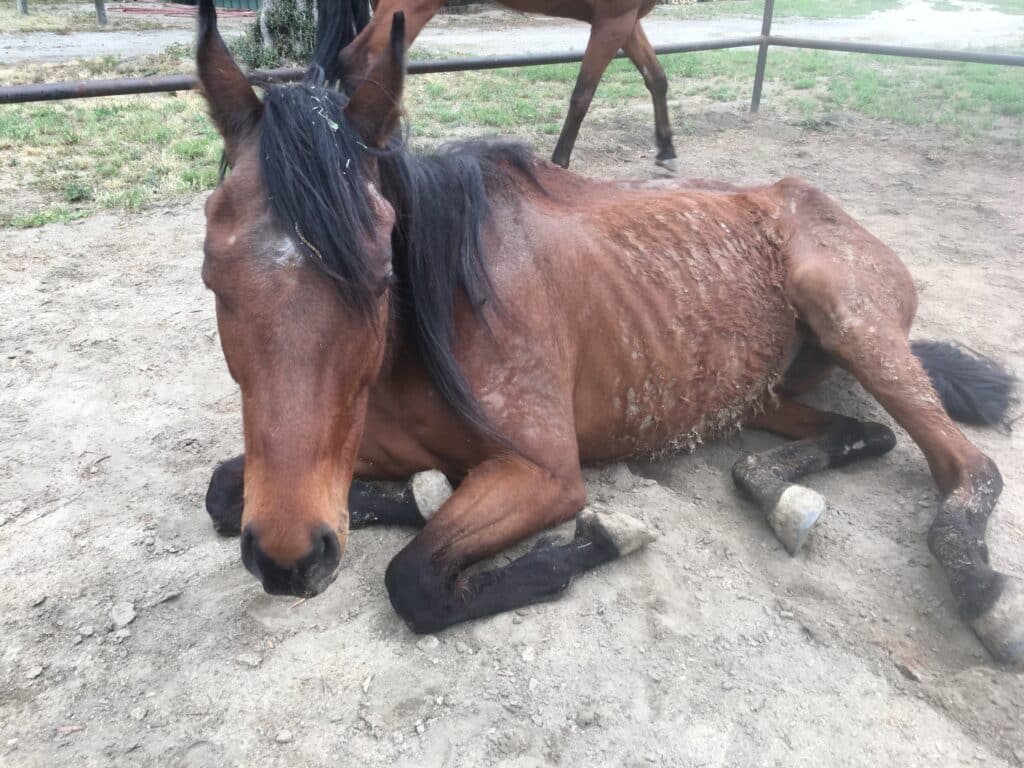
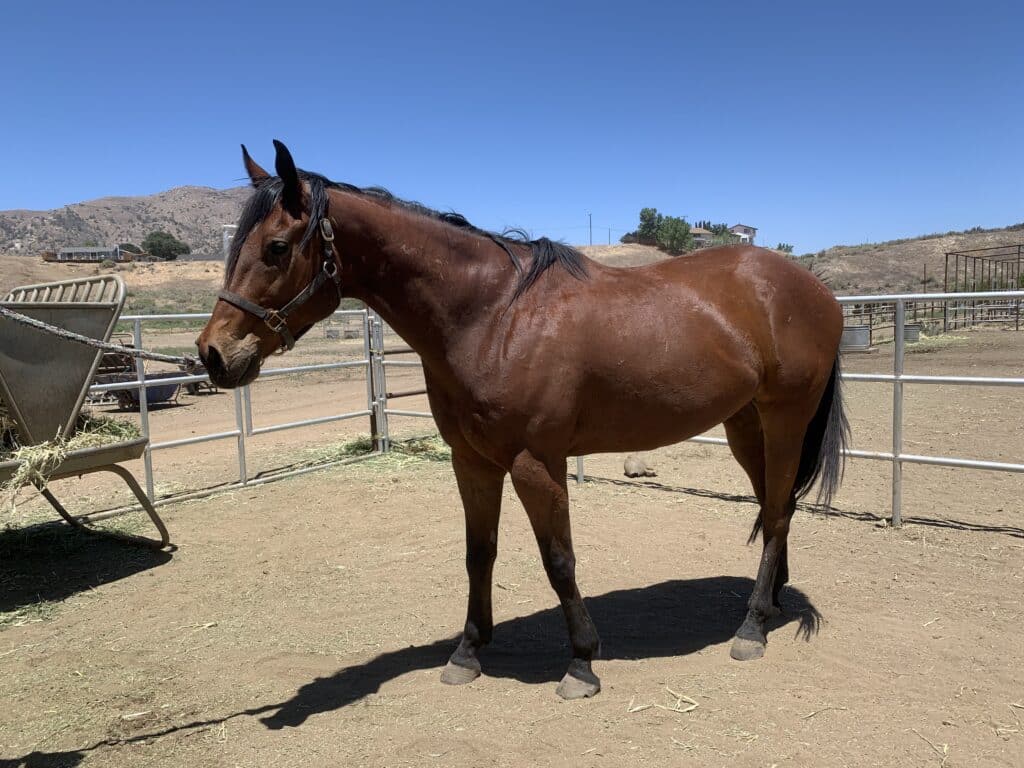
“Thank god CA is finally doing something about Carie (sic) we have been trying since 2019,” reacted Helen Meredith, founder and president of the United Pegasus Foundation. https://www.unitedpegasus.org/
In early 2019, Pegasus took 45 horses from CERF, 17 of them were in critical condition of starvation.
The complaint alleges multiple violations of state charity laws, most prominently breach of trust, by Ard’s allegedly endeavoring to sell the 29-acre ranch for $2.7 million — for the defendant’s own benefit — after CERF’s charitable registration had been revoked.
Other allegations listed are “unjust enrichment,” for Ard living rent-free on the formerly tax-exempt Sanderson Avenue property, and “unlawful solicitation,” stemming from her asking for donations when the nonprofit was no longer in good standing.
The state nullified the charity’s nonprofit registration in February 2017, followed two months later by the IRS doing the same thing with the organization’s 501c3 status, according to the Department of Justice.
“CERF and Ard subsequently failed to respond to audit demands and made no effort to reinstate CERF’s charity registration,” according to the agency.
The state is seeking unspecified monetary penalties and other resolutions. No trial date has been set yet in the civil suit.
Ard and CERF were sued by in fall 2019 by the neighboring Pegasus Foundation and Caru Society for the Prevention of Cruelty to Animals over the alleged maltreatment of the retired thoroughbreds and several donkeys on the ranch.
Pegasus and partner groups at the time succeeded in removing — with Ard’s consent — 44 horses from the location.
The organization posted pictures on its website that year showing the conditions of several thoroughbreds when they were transported to the Pegasus site, clearly emaciated.
The complaint alleged that the CERF ranch went into steady decline after Ard, a former store clerk who started out as a groomer at the facility, took over management, following the ouster of CERF founder Gracie Belcoure, who was at the helm going back to 1986.
Despite being a facility that once received millions of dollars in grants and bequests, the CERF ranch eventually ran into financial hurdles.
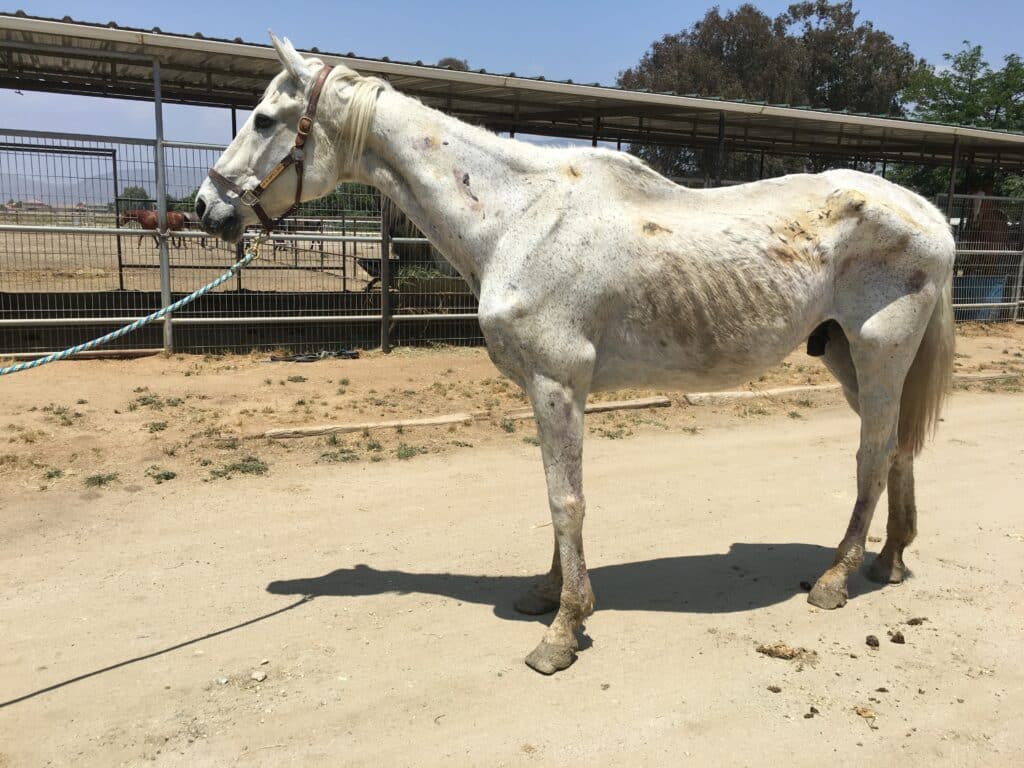
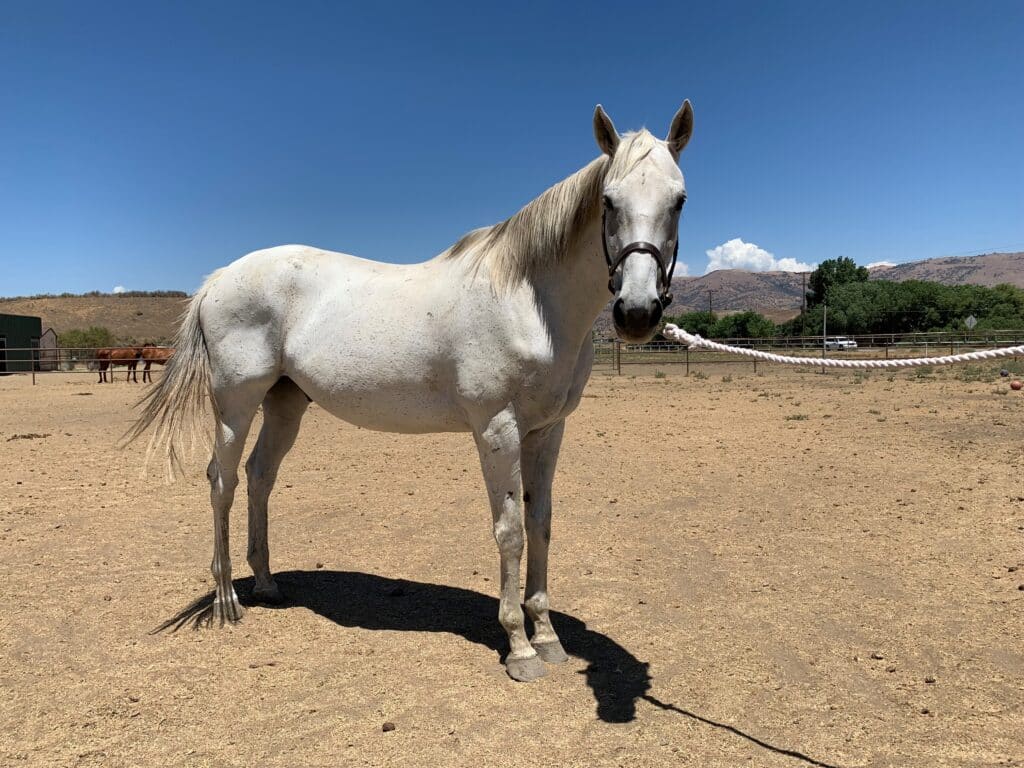
Common practices, such as the use of farriers to maintain horses’ hooves or inoculations for health maintenance, were largely dispensed with, and eventually the amount of hay provided to the equines was severely curtailed to save money, according to the complaint.
The plaintiffs wrote that in one instance, it was documented Ard was “purchasing 10 hay bales at a time, every other week.”
“The amount Ard was purchasing was not enough for even a single morning feeding for 75 horses, let alone for two weeks nourishment,” according to the complaint. “By contrast, Pegasus goes through approximately 22 hay bales per day for 80 horses.”
The private party lawsuit was settled on undisclosed terms at the end of 2020.


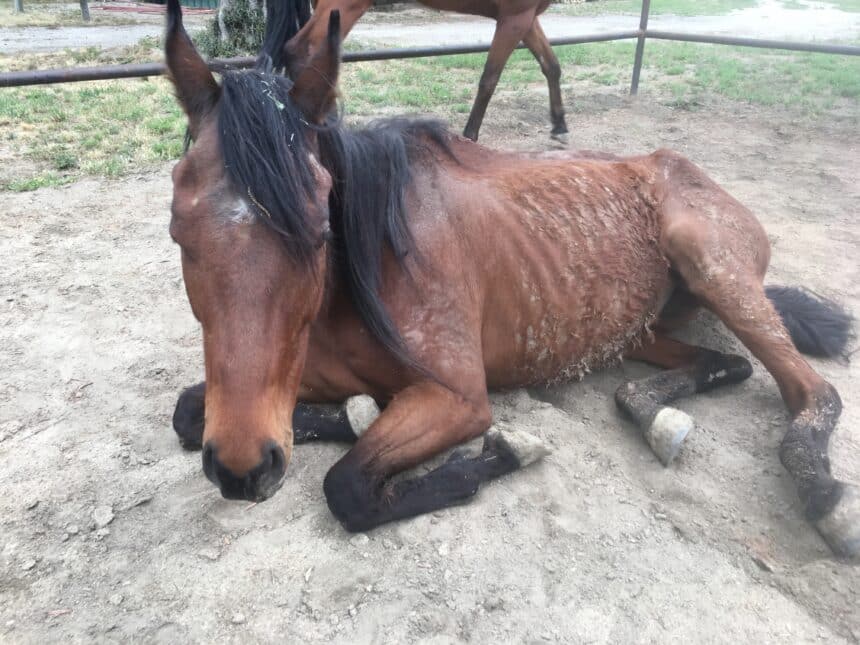
Your point of view caught my eye and was very interesting. Thanks. I have a question for you.
Thanks for sharing. I read many of your blog posts, cool, your blog is very good.
Thanks for sharing. I read many of your blog posts, cool, your blog is very good.
Your point of view caught my eye and was very interesting. Thanks. I have a question for you. https://www.binance.com/es-MX/register?ref=JHQQKNKN
Thank you for your sharing. I am worried that I lack creative ideas. It is your article that makes me full of hope. Thank you. But, I have a question, can you help me?